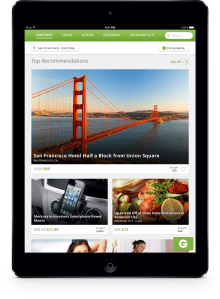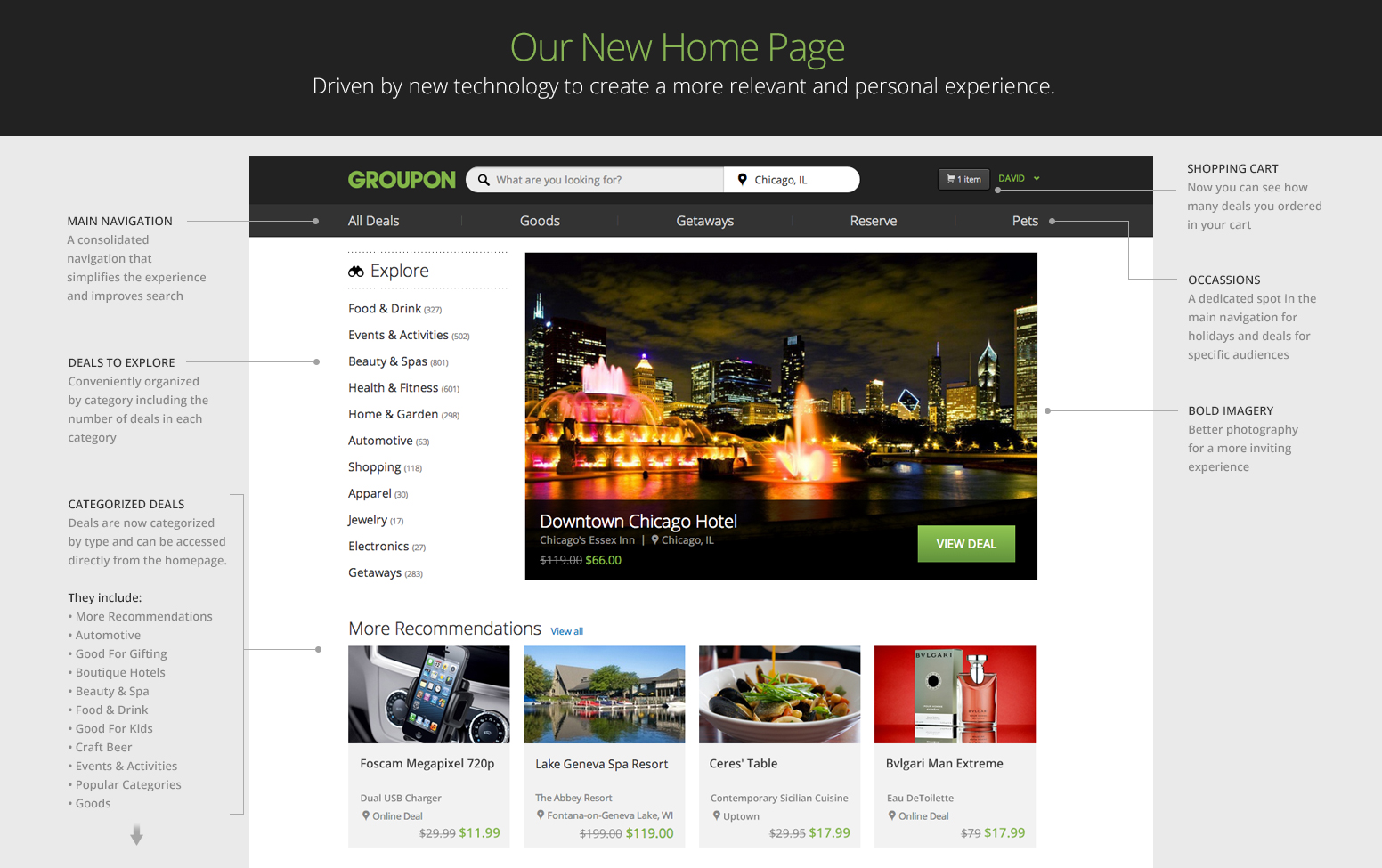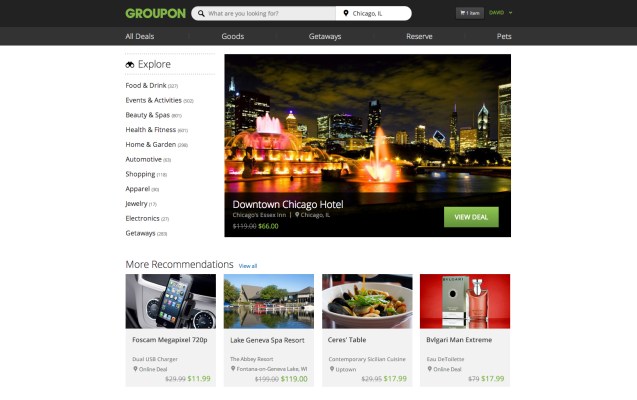Groupon hasn’t had a great go of things since becoming a publicly traded company; founder and CEO Andrew Mason was ejected earlier this year, and its so-called “third-party” or daily deal revenue seems to be in a state of continuing decline as more customers shy away from or ignore those emails offering flash sales. But under current CEO Eric Lefkofsky, the focus has shifted to a place where users go to search for deals, which is why the redesigns of its mobile and web presences announced today make a lot of sense.
On mobile, Groupon now has a “Local Explorer” feature, which automatically bubbles up content in the city in which a user is currently located (it used to serve this via a ‘Nearby’ tag only). It detects location changes in the background and sends targeted deals via push notifications, too, which is clearly designed to remind users that the app exists when they’re on holiday and perhaps more likely to be in need of discounted meals at restaurants, etc.
 There’s now a search bar at the top of every screen on mobile, emphasizing that new focus under Lefkofsky, and users are also greeted with personalized deal collections unique to each when they launch the app, instead of just a generic layout based on their hometown location. Groupon also moves into 12 new markets on the iPad with this update, which is key if the company is targeting travelers.
There’s now a search bar at the top of every screen on mobile, emphasizing that new focus under Lefkofsky, and users are also greeted with personalized deal collections unique to each when they launch the app, instead of just a generic layout based on their hometown location. Groupon also moves into 12 new markets on the iPad with this update, which is key if the company is targeting travelers.
On the web, there’s likewise a personalized homepage with “curated collections of deals based on the customer’s interests, previous purchases, [and] purchases by other customers with similar interests,” and there’s a new persistent search bar on every page of the site, which also features autocomplete suggestions. Those, too are designed to increase discoverability.
 Also new on the web are results that cross all of Groupon’s lines of business, spanning local deals, travel, restaurants and more, which is clearly aimed at generating some generative cross-market sales from users who are looking for more than one thing at once. Search also gets new filters that are designed to help users pinpoint their own specific areas of interest much more clearly.
Also new on the web are results that cross all of Groupon’s lines of business, spanning local deals, travel, restaurants and more, which is clearly aimed at generating some generative cross-market sales from users who are looking for more than one thing at once. Search also gets new filters that are designed to help users pinpoint their own specific areas of interest much more clearly.
Groupon may not be doing as well as some would’ve anticipated five years ago on its birthday, but these redesigns are the surest recent sign that it’s turning the prow of what has become a rather large and lumbering ecommerce ship towards new waters. A lot of these changes seem obvious in light of the current trends among online businesses and startups, but that doesn’t mean they can’t still have significant impact on Groupon’s average level of user engagement. Sadly, Groupon still requires an email to sign up for its website, which is perhaps the single most annoying thing about its platform. Baby steps, I suppose.
